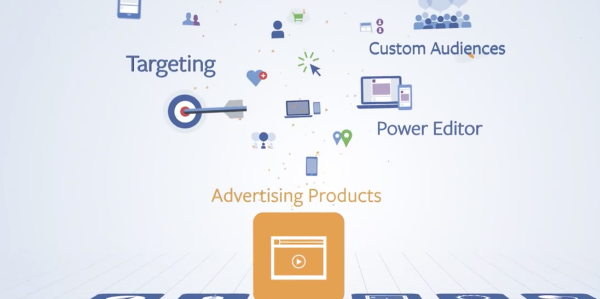Facebook use is usually frowned upon during office hours, but IPG Mediabrands Canada is asking its staff to spend more time than ever with the social media platform.
But it’s not all status updates and likes, as Interpublic Group’s media arm has become the first agency to implement company-wide training on Facebook’s one-year-old training and certification program, Blueprint.
Launched in May 2015, Blueprint is a free tool intended to help agencies and marketers develop more effective advertising campaigns on Facebook, which now boasts 1.65 billion active monthly users.
IPG Mediabrands Canada CEO Harvey Carroll called Facebook the “de facto leader” in the social media space, and said that it is crucial for IPG employees to fully understand the platform.
“As an agency we’ve been committed [Facebook] for a long time, and I would say we’re quite expert in it,” he said. “That being said, it’s a constantly evolving platform; part of beauty of Blueprint is that it’s built by Facebook in lockstep with their rollout and development. We want to be on the leading edge when a new type of ad unit or capability or research becomes available.”
While IPG has instituted other training and development courses around compliance and policy – as well as management training related to employee development and building work-plans – Carroll said this is the company’s most comprehensive involvement with an external partner. Blueprint will be available to all of IPG’s approximately 460 employees, he said.
IPG has worked with Facebook to customize various learning streams within the program for the different functions within its organization, and has added a gamification element to the process by establishing cross-agency teams and tracking metrics such as participation, how many modules they have completed, etc.
“One of the things that we’ve identified as critical for our organization is to make sure all of our teams are as knowledgeable, as well-trained as they possibly can be on the important platforms, so they can deliver benefit for our clients,” said Carroll.
Blueprint uses a three-pronged approach built around e-learning, in-person training and a planned certification program to educate participants on key aspects of Facebook including video, measurement and campaign optimization.
Sarah Personette, head of global business marketing for Facebook in New York, said that Blueprint was launched in response to requests from agencies and advertisers who wanted to ensure their staff were effectively trained on Facebook, particularly given its rapid evolution and change.
The foundation of the program is a customizable e-learning centre featuring more than 35 desktop and mobile-enabled courses with tracks organized by category, such as direct response marketing, and for specific roles, such as digital buying. The component evolves in lockstep with new Facebook products said Personette.
The free program is now available in over seven languages and caters to clients of all sizes who wish to incorporate Facebook into their marketing plans.
There is also a live learning component featuring Facebook experts called Blueprint Live, which caters to mid and senior-level executives and consists of a full day of training built around case studies and workshops.
Blueprint Live is aimed at training what Personette called “agency ambassadors,” who can subsequently use their learning to train others on the platform. First piloted in the EMEA Region, Blueprint Live has now been rolled out to North America, Latin America and Asia-Pacific. It is available to individual agencies as well as specific groups (such as rising stars) within individual markets.
Facebook also plans to introduce Blueprint Certification, built around certification exams in advanced-level competencies, sometime in Q3. It will feature a basic exam as well as planning and buying exams, said Personette.
More than 300,000 people have used Blueprint’s e-learning component since its introduction said Personette (Toronto boasts the highest number of completions in the world for the Blueprint Live component).
Personette said that Facebook continues to evolve its advertising platforms to address evolving mobile habits, with video continuing to emerge as a key area of focus.
Facebook users are now sharing and creating three times more video on the platform than they were one year ago, with more than 100 million hours of video consumed on the platform every day.
The company is also experimenting with enhanced video experiences such as Live and 360-degree video, and recently introduced a new Auto Captions tool that enables marketers to create captions for their video ads. Facebook’s research indicates that captioned videos increase the average view time by as much as 12%.
Other new ad units introduced this year include Canvas, which opens up a full-screen rich media ad unit capable of displaying everything from animations, product catalogues and videos within the Facebook app rather than taking users to a slow-loading mobile site.
“It allows [brands] to take their consumers on an elegant journey in the mobile feed,” said Personette. “It’s an example of how we’re stretching the boundaries around creativity.”











